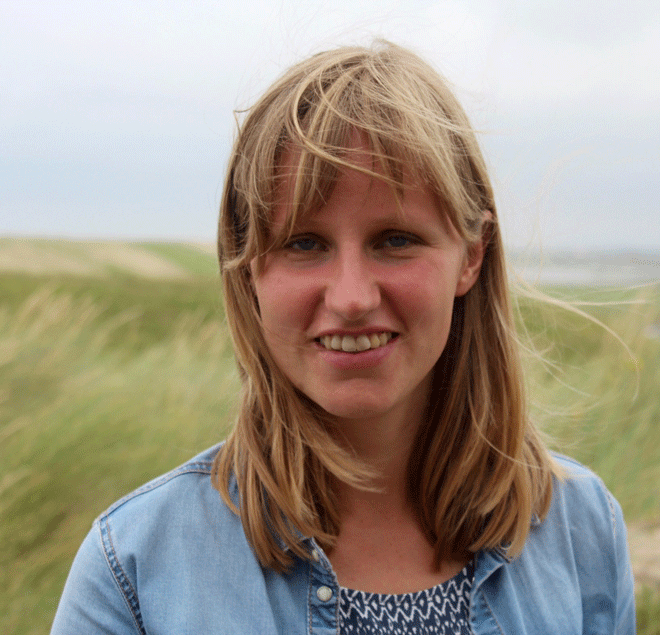Choose a degree programme together
‘What is in your opinion the most important thing to tell parents about choosing a degree programme?’ I put the question to Nanne Roos Vonk, employee of Handicap + Study Expertise Centre: ‘You should choose a degree programme together,’ answers Nanne. ‘Even if your child has a disability. Sometimes I get a call from parents at the Handicap + Study Expertise Centre. And often a parent does this without the knowledge of the person choosing the programme. This really isn’t a good idea’. Read Nanne’s story. (in Dutch)

‘You should choose a degree programme together, even if your child has a disability’, Nanne Roos Vonk
Student with a disability
‘A lot of young people have a disability. And the number is growing. About 30% of students are disabled. Examples of this are students with learning disabilities such as dyslexia, depression, autism or ADHD. And, of course, there are also students with serious or less serious physical disabilities or handicaps. Ten percent of these students really need help with their study. So you’re talking about 70,000 students at colleges and universities.’
Orientate yourself well and be open
‘A lot of young people find it difficult to choose a degree programme. This is certainly the case if you have a disability or handicap. Then it’s extra important to orientate yourself well. Start thinking about which degree programme you want to take in good time. Attend the Open Days and walk-in days. Then you can compare programmes. Where can you expect the most support? What kind of feeling do you get at a certain training institute? Is it easy to talk to the students? The study advisor? The student dean? You choose a degree programme together, the people at the college and university can also think along with you.’
You choose a degree programme together, but it’s the student who is responsible
‘I do understand that parents are concerned about their child’s welfare. All the more so if this child has a disability. But it’s the student himself who is responsible for choosing the degree programme and his study. As a parent you can’t take this away from your child. I also advise parents to leave it to the student to talk about his disability at an Open Day.
And I do think it’s important to talk about it. Then the student dean or study advisor can start organising all kinds of facilities for you right away. This is also important if the student has a mental illness or is depressed. But I can understand too that a student says: ‘I’m starting a new life. I don’t want to start talking about my disability right away’.
Comparing programmes
‘It’s very important to compare programmes. For all students but certainly for students with a disability. It’s really easy to compare programmes on our site. But you can also find out how a programme deals with a disabled student in other ways. You can ask about this at an Open Day too’.
Money affairs and studying for longer
‘Some students with a disability take longer to complete their study. If a student falls behind due to a disability, he can be awarded an additional grant for a year longer. He can also get a reduction of up to €1200 on his student loan if his studies take longer. In addition, municipalities offer all kinds of facilities. But the student must have had contact with the student dean beforehand.’

Choose a degree programme together
Binding Study Advice
‘I also advise a student to talk to the student dean about the Binding Study Advice. A student with a disability may sometimes be given the option to have more time to earn the credits required. But in this case too the student must request it in good time. You choose a degree programme together, also together with the people who are there to help you at your college or university’.
Own experience
‘My own story: I’m blind. So I knew that certain programmes were ruled out. For example, I can’t become a pilot. Everyone understands that. I then started to look at programmes that I could do with my handicap. At the Open Day I made contact with the study advisor or study coordinator. In this way I was able to find out what help was available. The studying went well. For example, there was a student assistant who helped me if I was struggling with something. I had help to understand certain images that I couldn’t digitise. And I also had help getting hold of digital versions of books that I had to read. My guide dog was allowed in everywhere. It was only the practical components that I had difficulty with sometimes. The lecturers really understood that I needed help now and then’.
Also read the articles on preventing study stress:
Prevent study stress… learn to choose what suits you
Prevent study stress… don’t drive yourself crazy
Prevent study stress… ask for help
Prevent study stress and research on study success
Prevent study stress and study credits

